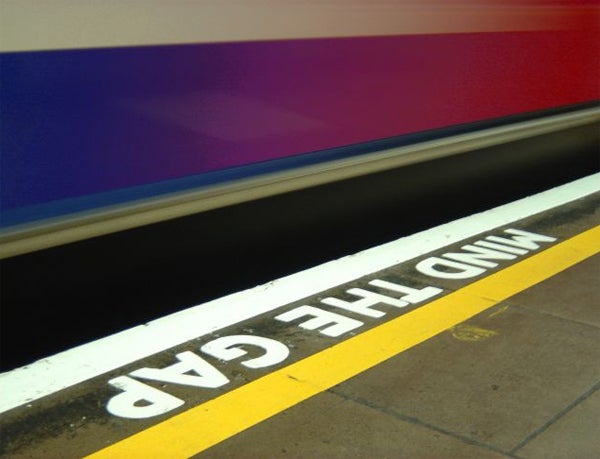The Independent's journalism is supported by our readers. When you purchase through links on our site, we may earn commission.
Geared up for super savers
Travel will take up a big part of your budget so it pays to keep an eye out for bargains, says Anne Giacomantonio

One of the biggest hits to a student’s weekly budget is travel. Whether you’re going home for the weekend or just travelling around your university town, there are savings to be made with a little investigation. Being the kind of guys we are at Independent Student we’ve started that investigation for you. No, stop it, really – you’re welcome.
Trains
It can be tricky to decipher the pricing systems of train companies. Prices vary for any number of reasons, including time of day, whether or not you booked in advance, whether it’s a single or return… the list goes on. The earlier you book tickets the more chance you have of getting a cheap fare. Rail networks must have their timetables available 12 weeks in advance and that’s also the ideal time to save the most. You can often sign up to alerts via the website, which will notify you when tickets are released or if there is a sale. Purchasing a ticket in advance, even if it is just a few hours, will generally be cheaper.
If you are booking online, try to use an individual rail company’s own site to avoid booking fees. You might also find special deals; Southern Railway’s group save fare allows up to four people to travel for the price of two, for example. One thing that will guarantee you a discount across the majority of fares is a 16-25 railcard. If you are between the ages of 16 and 25, or a full-time student of any age, it will save you a third of the fare price. The card costs £24 annually but, if you use trains regularly, you will make that cost back in savings in no time.
Buses and coaches
Buses and coaches usually have a less confusing ticketing structure than trains. They do take longer to get to your destination, but it’s much easier to find cheap fares. Megabus.com and National Express are a good place to start if you’re travelling across the country. With fares from as little as £1 when booked in advance, you are unlikely to find cheaper.
The Young Person’s Coachcard through National Express works on much the same principle as the 16-25 railcard, available to full-time students and those between the ages of 16 and 26. With the £10 annual card cost (or £25 for three years) you can get 30 per cent off most fares. The discount does not apply to funfare tickets, which are usually the cheapest available.
Stagecoach’s Unirider is a city-based card scheme allowing cheap travel within a particular city, approximately £1 per day for unlimited travel within the zone you’ve selected. Students are able to purchase a Unirider card for various lengths of time, usually based on the university term timetable. Check the website to see if Unirider is available in your area.
Around town
For travel discounts that cover your local area, check your student union, city council or university website for information and advice from local firms. In London, the Oyster card system is the most efficient way of using transport across the city. The Oyster card can be used on buses, the underground and national rail services within the London area (although the pre-pay function is not currently available at all national rail stations).
The 16-25 railcard discount can be applied to the Oyster card too; this means the daily cap for students is a third less than an adult fare. There is also a student Oyster scheme, but you should sit down and look at the rules to work out if there are any savings in it for you, as the fare structure is quite complex and you will probably be travelling off-peak. In other cities there may be a university-funded shuttle service between the university and city centre, or the main train station. In Manchester, the public transport network has three free circular routes throughout the city, for example. Find out if such a service exists in your city.
Independent student suggests…
Find out the times of the last train or bus from university to home so that you’re not caught out. Take a walk around the university and the area in which you live: knowing where everything is makes life much easier. Try to plan social events in advance. This will mean you can check if you can get home, and make alternative plans if it is difficult. Make sure you get off at the right bus stop; if travelling late, try not to fall asleep and end up somewhere you really don’t want to be! Save travel enquiry numbers to your phone. Think about buying a bike: easily the cheapest and most environmentally friendly way of getting around.
Web aid
- UKstudentlife.com - All the best advice on British and European travel www.ukstudentlife.com/Travel/Transport/Train.htm
- The Student Room - This is a site that caters to both commuters and cyclists www.thestudentroom.co.uk/wiki/Travel_and_Getting_Around
- Gap year - Check out our gap year section if your travel plans are more ambitious…
Join our commenting forum
Join thought-provoking conversations, follow other Independent readers and see their replies
Comments
Bookmark popover
Removed from bookmarks